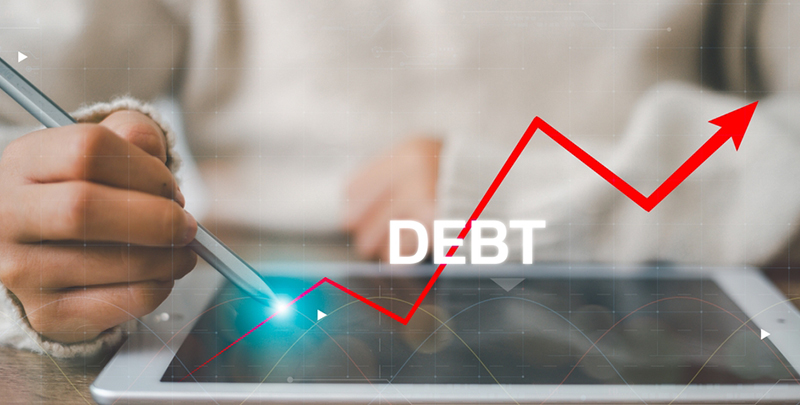- Accounts
- Digital Savings Account
- Savings Account
- Digital Salary Account
- Salary Account
- Digital Current Account
- Current Account
- Trust NGO Institutional Savings Account
- Safe Deposit Locker
- Safe Custody
- Pension Disbursement Account
- PMJDY
- Silver Linings Program
- Doctors Banking Program
- Young sparks program
- Self Employed Banking Program
- Deposits
- Cards
- Forex
Send Money AbroadSend Money to India
- Loans
24x7 Loan
- Investments
- Insurance
General InsuranceHealth Insurance
- Payments
- Offers & Rewards
- Learning Hub
- Bank Smart
- Open digital A/C
Explore 250+ banking services on Axis Mobile App
Scan to Download
- Current Account
- Pay
- Collect
- Trade
Services
Solution for Exporters
- Debt & Working Capital
24x7 Loans
For MSMEs with turnover up to ₹30 Cr
- Treasury
- Transact Digitally
- Home
- Blogs
- Personal Loan Guide
- How to consolidate debt and when it makes sense

Personal Loan
Debt consolidation: One loan to pay them all
Understanding this ratio can help you manage your credit more effectively and improve your score.
What is Debt Consolidation?
Debt consolidation refers to the process of combining a variety of loans, credit card dues, personal loans, or other borrowings into one single loan. So instead of tracking many payments and interest rates every month, you’ll pay just one amount, often at a lower interest rate.
So, if you're still in your early earning years, this step can break the cycle of high-interest debt and open doors to better money management and even smarter investing.
How does Debt Consolidation work?
Let’s say that you owe some repayment capital on three credit cards, each with high interest rates, and you also have a personal loan. You can take a consolidation loan, which would be a single new loan, ideally at a lower rate, to pay off all these bills. So now, you basically need to handle only one EMI. Simple.
- Let’s say the total monthly outgo on your various loans and credit cards is ₹20,000.
- After debt consolidation, you can bring this sum down to ₹15,000, saving at least ₹5,000 a month.
- Over a year, that’s an additional ₹60,000 you can save, invest, or use to clear out your new consolidated debt much faster.
When should you consider Debt Consolidation?
Debt consolidation makes the most sense when you have to juggle multiple high-interest loans or credit card bills and are struggling to keep up with payments.
If your credit score is still in good shape, you may qualify for a lower-interest consolidation loan that reduces both your monthly expenses and overall interest burden.
Conclusion
Debt consolidation puts you back in control of your long-term finances. Take the required time to analyse and compare lenders, read the fine print, and make sure that your budget allows smooth repayment. Remember, every rupee saved in interest is a rupee gained towards your investment goals.
Disclaimer: This article is for information purposes only. The views expressed in this article are personal and do not necessarily constitute the views of Axis Bank Ltd. and its employees. Axis Bank Ltd. and/or the author shall not be responsible for any direct/indirect loss or liability incurred by the reader for taking any financial decisions based on the contents and information. Please consult your financial advisor before making any financial decision.
Table of Contents
Related Services
Learning Hub
Look through our knowledge section for helpful blogs and articles.
Feb 1, 2026
2 min read
459 Views
Ammortization 101: Everything you need to know
Do you know why your loan repayment installments start off heavy on interest...
Feb 1, 2026
2 min read
346 Views
Debt-to-Income Ratio: Your gateway to loan approval
If you have a plan to take a home loan, buy a car...
Feb 2, 2026
4 min read
80 Views
The battle of debt strategies: Snowball or Avalanche?
Debt repayment is not much more than just about paying off your dues. It is also about saving towards your future financial goals













